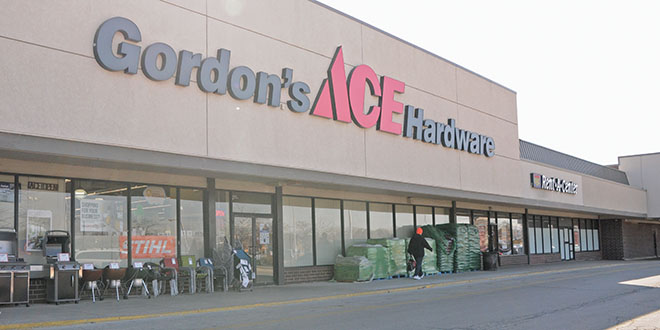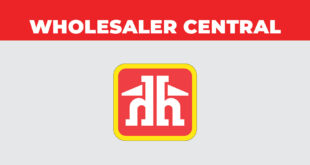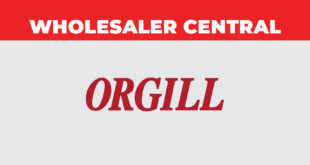In the June issue of Hardware Retailing, we shared an article detailing the unique challenges and opportunities urban retailers experience. The article details what all retailers can learn from those conducting businesses in an urban environment and includes insights from a few retailers, including Jeremy Melnick, owner of Gordon’s Ace Hardware in Chicago.
Melnick and his father Les Melnick own and operate nine store in urban and suburban neighborhoods. Operating businesses in both types of markets, Melnick offers a unique perspective regarding the difference between doing business in an urban versus suburban market. Here, Melnick answers a few questions from Hardware Retailing.
Hardware Retailing (HR): What is the single biggest challenge you face as an urban retailer?
Jeremy Melnick (JM): Well, I think what keeps us up at night, regardless of whether your store is urban or suburban, is labor and security of labor. I don’t think that’s unique to the urban market. In an urban environment, you have to get new hires in and get them trained to understand the culture of a smaller footprint. Employees tend to wear more hats when working in a smaller store because you still have the same number of customers as you would have in a larger store, but you have to do the work in a much smaller space. You have to be cross-trained because you really can’t have a paint department manager and an electrical manager if you’re in a 4,000-square-foot space standing a few feet apart from your co-workers.
HR: Do you find it difficult to find strong, qualified employees?
JM: In a city with a large population, it’s actually easier to get applicants for a job because we’re dealing with a larger pool. It’s not necessarily hard to find the help. Now, trying to vet the people who are applying can be a little bit more challenging.
HR: What are the biggest differences between your urban and suburban stores?
JM: The biggest difference lies in the lawn and garden department. At the suburban/urban-type stores we sell about the same lawn and garden products as we do at suburban stores. However, in our urban stores we don’t sell any lawnmowers or snowblowers, pallets of bagged goods or many live goods. Nobody is using a snowblower for their apartment balcony. We also sell a lot more lightbulbs in the city. Lightbulbs and paint are our top two categories in the urban stores. They’re big for the suburban stores as well, but in the urban environment those two categories are very high. Cleaning supplies are also very big for us in the urban environment. People come to us for daily household and cleaning needs.
HR: How do you differentiate yourself as a brick-and-mortar resource in your urban community when many city dwellers prefer e-commerce options, like Amazon?
JM: With the fast-paced environment and younger generation moving into the city right after college, they’re definitely tuned to “click and ship.” Because we have five stores that are in urban communities full of high rises, we do free, local deliveries on any order over $50. We also have inventory coming in every day at one of our locations, so we try to communicate with customers than we can get what they need in 24 hours. We compete by being available for face-to-face help and assistance. If you can’t come in or can’t carry the product or can’t drive, we’ll deliver it for you. We have a truck running all over the city seven days per week.
HR: How do the high-occupancy costs of the city impact your business?
JM: The occupancy costs in the city are crazy compared to the costs outside the city. You really can’t afford to have a large footprint in the city because it’s just too expensive. So, you have to put a lot more product into a smaller space, and it can get to be a little more cramped. It can be difficult to display bulk items and items like grills, balcony furniture and Christmas items. In the suburbs you might see faster-moving items bulk stacked, but it’s more of a challenge in the city. We typically go vertical with displays.
HR: Tell me about your customer demographics.
JM: Consumer demographics vary per location. We have some stores in a high-end neighborhood, and we have other locations in neighborhoods that aren’t considered as high-end. The suburban stores have more of a family feel to them. In the city, there are a lot more young people working their first jobs, empty-nesters and retired people, so they’re not in the stores with their families. The city is fast-paced and people have the “I need it now” type of mentality. The suburban stores tend to be a little less intense.
HR: Is loss prevention something you worry about more in the city than you do in your suburban stores?
JM: We’re a bit more attuned to security issues and theft in the urban stores. Security issues come up in the suburbs too, but there’s a more trusting mentality in the suburbs compared to the urban stores. In the city, we are definitely always on guard and have an eye out for not only shoplifting, but things like counterfeit money. However, we understand that whatever could happen in an urban store could also happen in a suburban store.
HR: Are there any city ordinances that impact your urban stores specifically?
JM: Ordinances are a big thing, especially in the city of Chicago. There seems to be a tax for everything we do. For example, we recently hosted a grilling demo at our suburban location, and we had to get the proper permits and the health department’s approval. They were easy to work with, and we had a very successful event. We did the same event in a downtown store last year, and we had to fill out many forms, pay multiple fees and deal with lots of health department regulations, even though we’re certified to handle food in the state of Illinois. The city of Chicago makes it very difficult to do business, and I’m sure it’s similar in New York, San Francisco and other large cities. Pricing rules in the city are also different. There are inspections on our bin tags and price scanning in the city that we don’t deal with outside. Generally, the cost of doing business in the city is much higher. The wages are higher, we have a bag tax in the city and property taxes are higher, to name a few.
HR: Are there any rules or regulations that impact what you’re allowed to sell in the city?
JM: One of the biggest categories at our suburban stores is spray paint. In the city, we’re not allowed to sell spray paint. The city of Chicago fought very hard about 25 years ago to ban selling spray paint. It doesn’t matter if you’re Home Depot, Menards, Lowe’s or whoever. No one can legally sell spray paint in the city, and it’s completely crazy because you can go online and buy it from Amazon and have it delivered the next day any way. We’re fighting against this law, but the process to get anything changed is very slow.
HR: Is there anything you sell a lot of in the city that people may find surprising?
JM: We sell a lot of humidification products. Humidifiers are a big seller throughout the urban environment because of all of the people living in high rises where heat and AC is controlled by the apartment complex. You don’t have that in the suburban environments. We also sell a lot of bike locks and other items related to a lot of security in that respect. Keys are another big one. We compared the numbers from our urban stores to the suburban stores, and the number of keys we cut in the urban stores is ridiculously higher.
 Hardware Retailing The Industry's Source for Insights and Information
Hardware Retailing The Industry's Source for Insights and Information








